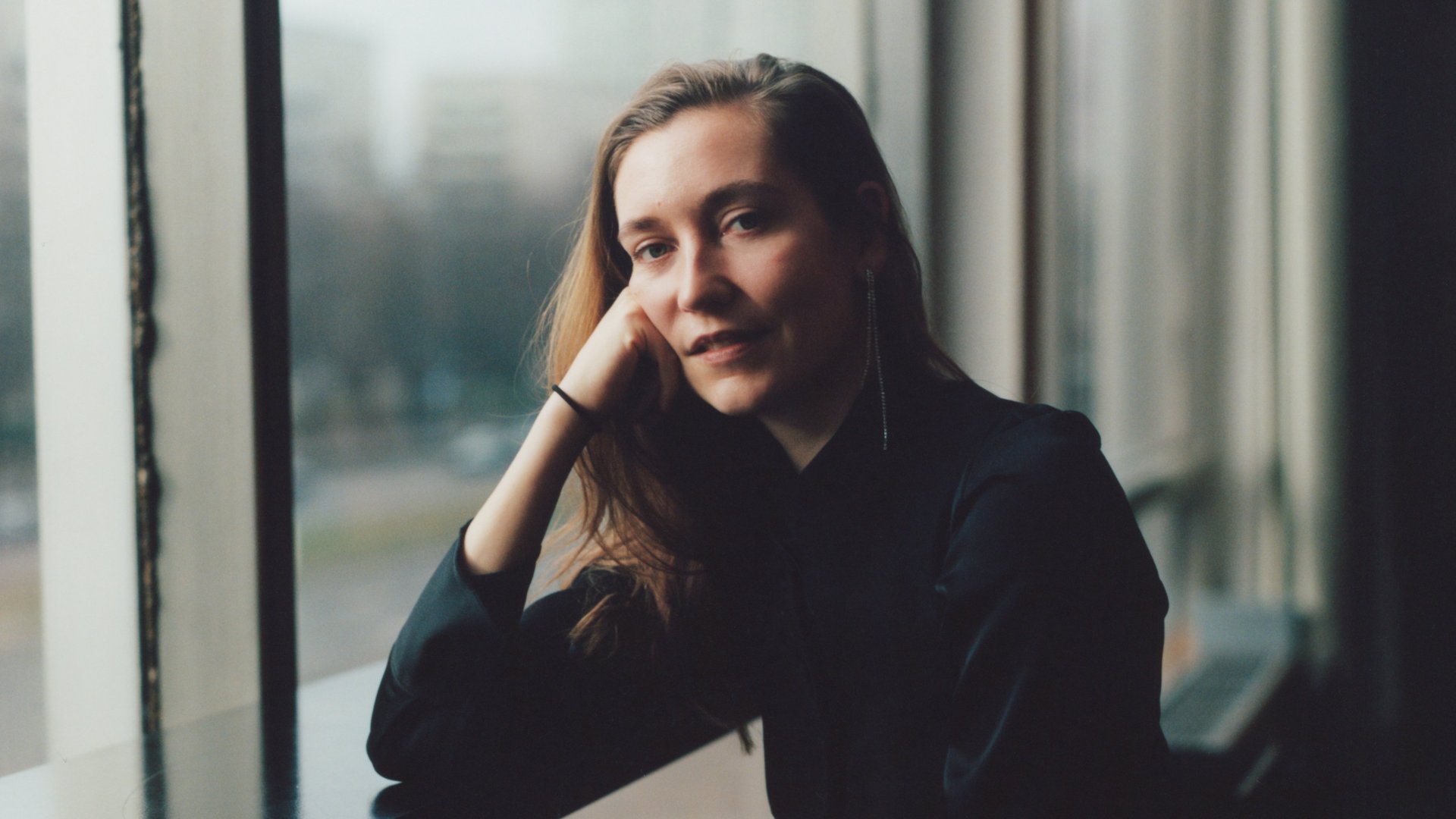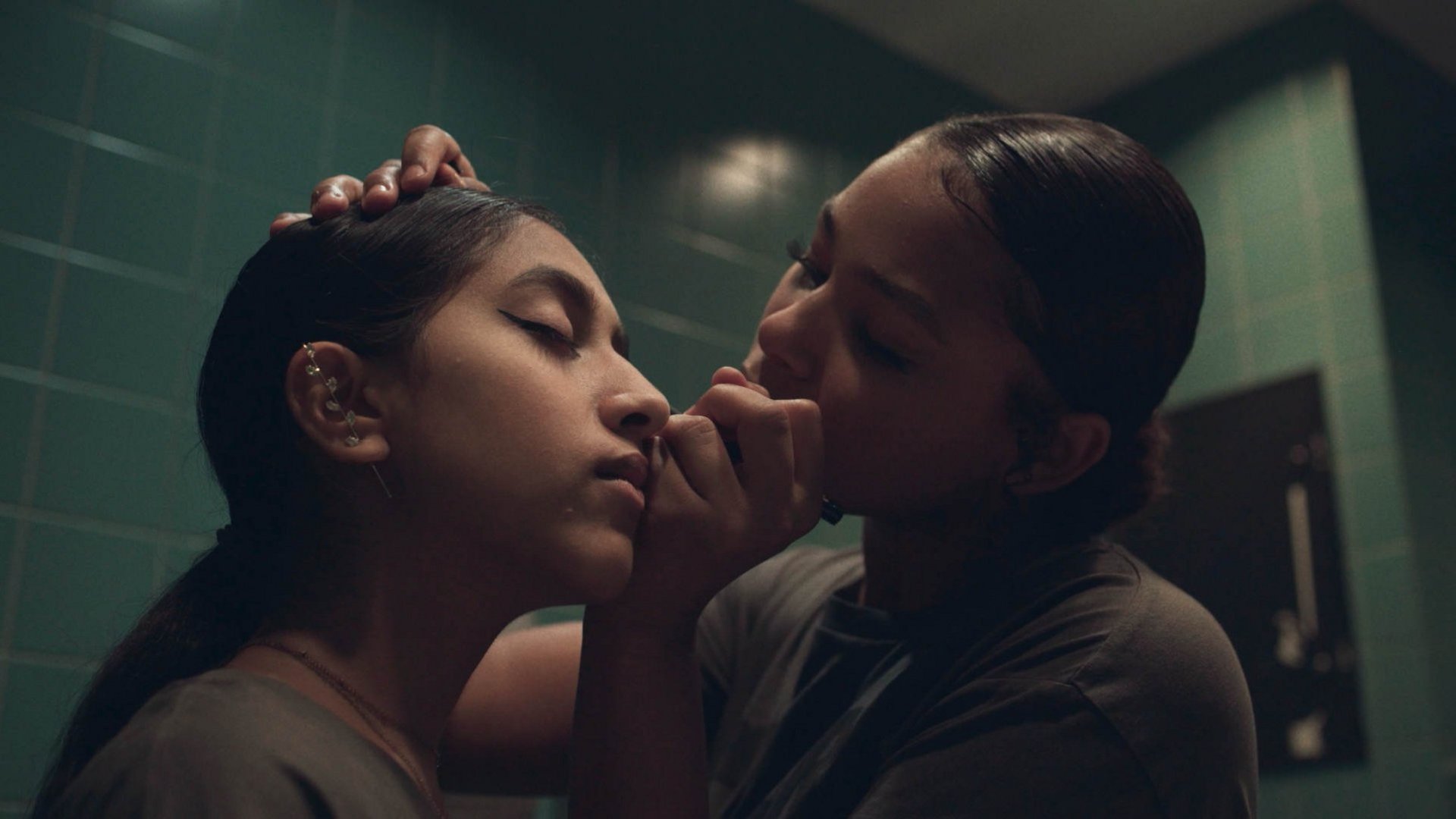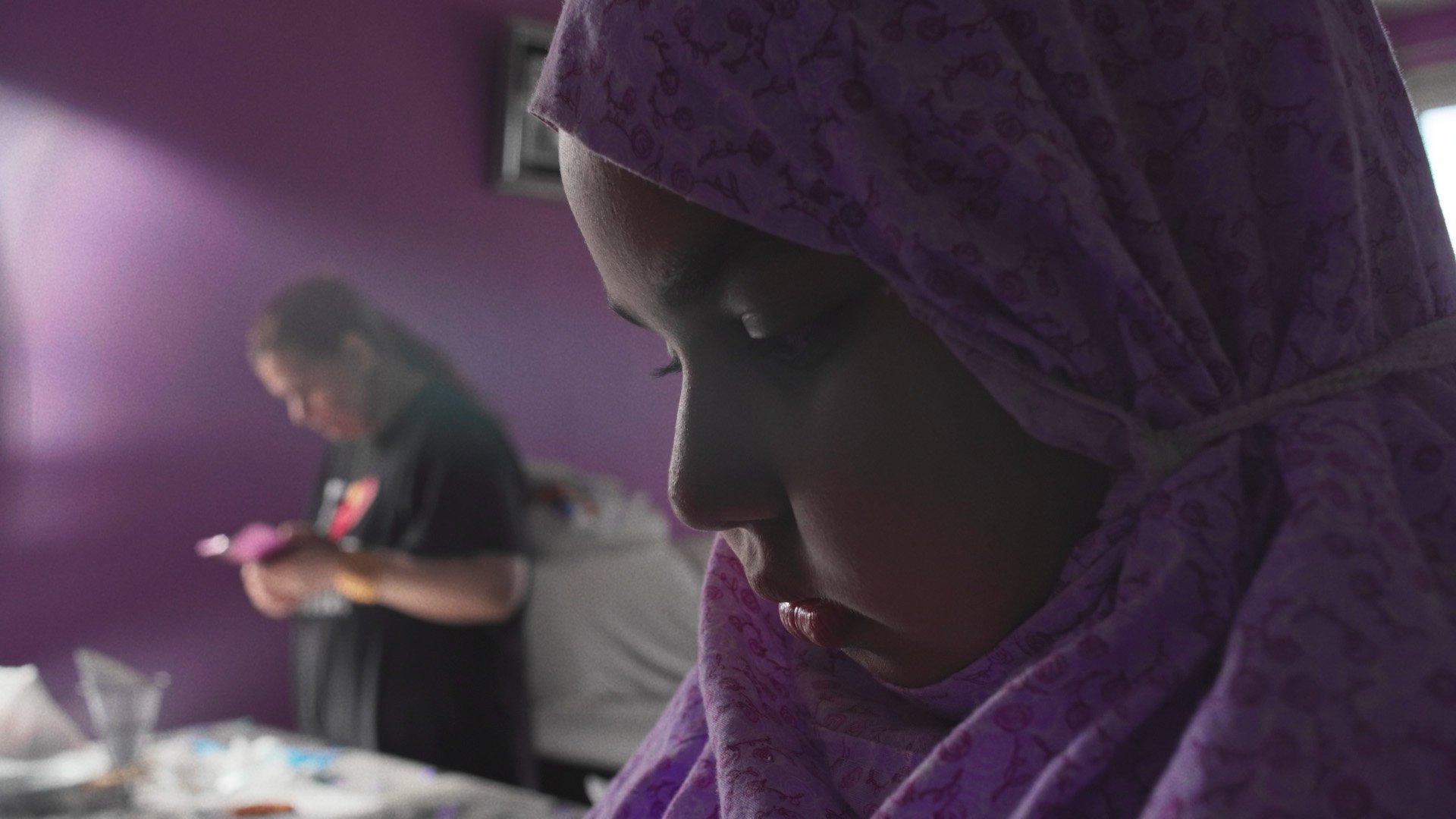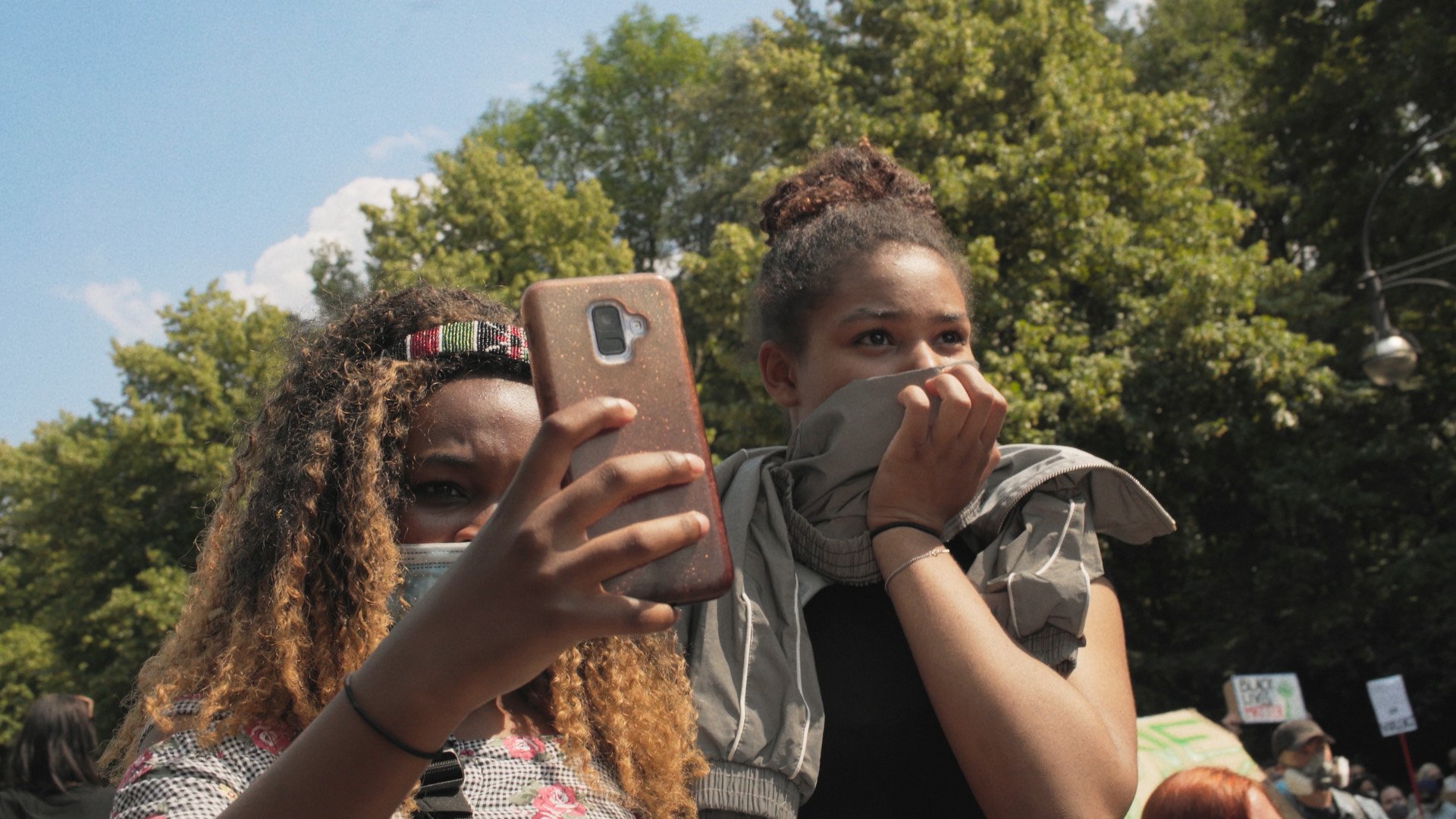
© Amelie Amei Kahn-Ackermann

© Amelie Amei Kahn-Ackermann
Over the course of three years, Jamila (9), Rachel (11), and Faseeha (12) from the rap crew Sisterqueens challenge societal norms and fight against gender expectations. The three friends are concerned with questions of self-determination, identity, and equality— despite their young age. They discuss how insulting it is to call girls ‘girls’, how they experience racism, and how to apologize when someone has been hurt.
The girls live in Berlin’s Wedding district, an area shaped by precarious housing, working, and living conditions. With their visions for a feminist life, they often clash with prevailing norms. Over the course of the film, we watch the children grow into teenagers and experience puberty while being shaped by their individual and collective successes and disappointments.
Clara Stella Hüneke: I met Faseeha and Rachel through our dramaturge, Rebecca Ajnwojner, and a theatre piece they were involved in. I was immediately impressed. They told me about the girls’ centre, and after a lengthy getting-to-know-each-other phase,I shot the first interviews with them there. In consultation with their parents and educators, the girls voted for the film project at a girls’ assembly.



These three deeply moved me with their political demands, which they were able to articulate so artistically at such a young age.
Faseeha has an incredible stage presence. She impresses me with her clear visions and raises questions about the balancing of work and private life—a central feminist issue. Rachel explores and critically questions the possibilities of feminism and her role within it with incredible humour and honesty. Jamila has such a surprising way of putting the world into words and metaphors that has touched me deeply and changed me forever. She can bring lightness to the heaviest topics while asking highly complex questions. I often found myself thinking, ‘What would Jamila say about this?’
Faseeha, Rachel, and Jamila are particularly smart,witty, and courageous individuals, each in their own way. The fact that they are already tackling such big political questions and positioning themselves as artists at such a young age also highlights the importance of the kind of youth work done at the Mädea intercultural girls’ centreand in the Sisterqueens rap project. Here, very young girls learn about sisterhood and political participation, and can explore their artistic talents. The film gives great insights into what is possible in anti-discrimination initiatives that provide young people with access to education opportunities tailored to their own realities free of charge. Many of these youth programmes are currently experiencing cuts and being downsized nationwide. I hope the film can counteract this state of affairs.
Before the film, I had a different understanding of role models. I assumed that role models were people older than you. Now I am convinced that they can also be younger. And that conversations between different generations are a core theme of my films.
Self-confidence, humour, openness, curiosity, political participation, creativity, how to find a voice, courage, perseverance, critical thinking, sisterhood, solidarity, how to understand art, stage presence, and also how to ‘be your own role model’, to quote a line from the film.
The rap project SISTERQUEENS is a project by Peira in collaboration with Haszcara, Alice Dee, Leila Ey, and various girls' centers.